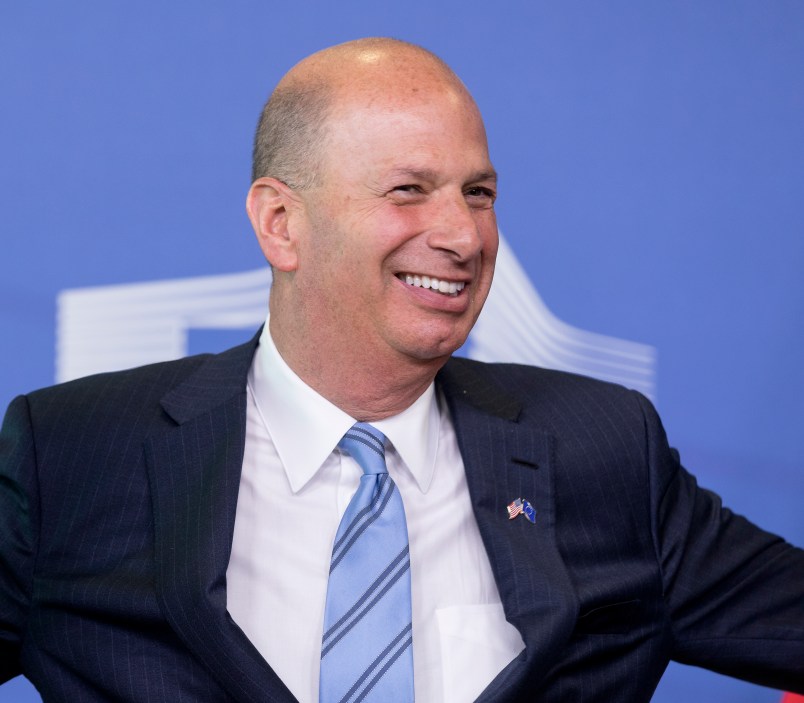The Trump-appointed ambassador who played a direct role in President Trump’s Ukraine pressure campaign “does not recall” conversations where he allegedly linked a White House hold on aid to the country to demands it announce investigations into Trump’s political rivals.
An attorney for the U.S. ambassador to the European Union told the Washington Post Wednesday that the ambassador, Gordon Sondland either does not recall or disputes claims made by Bill Taylor, a career U.S. diplomat, during congressional testimony Tuesday.
Taylor’s testimony, which took place behind closed doors, prompted some members of Congress to suggest that there were inconsistencies between Taylor’s version of events and what Sondland told House impeachment investigators earlier this month.
Taylor recounted learning through a White House official of a Sept. 1 conversation Sondland had in Warsaw with an aide to Ukraine’s President. Sondland told the Ukrainian official that military assistance was being withheld until Ukraine committed to investigating a company with links to Joe Biden’s son, according to Taylor’s account of how the White House official recalled Sondland’s description of the conversation.
Sondland later confirmed the Trump quid pro quo in a phone call with Taylor, according to Taylor’s opening remarks, which were leaked.
Sondland’s attorney Bob Luskin disputed to the Washington Post Taylor’s version of the Sept. 1 Warsaw conversation. Sondland also told House investigators earlier this month, according to the Post, that he had no way of knowing whether Trump was being truthful when Trump told him later in September that there was no quid pro quo.
Taylor’s opening statement — suggesting that Sondland was aware that investigations were a condition of the aid’s release — was at odds with that claim.
“Sondland does not recall any conversation in Warsaw concerning the aid cutoff, although he understood that the Ukrainians were, by then, certainly aware of the cutoff and raised the issue directly with Pence,” Luskin told the Post in an email.
Taylor’s testimony also raised questions about Sondland’s claim in his prepared testimony that he was unaware that Burisma — the company that Trump’s personal lawyer Rudy Giuliani demanded Ukraine investigate — had connections to the Bidens. (Joe Biden’s son Hunter sat on the company’s board).
Taylor said he was told by the same White House official of a Sept. 7 conversation Sondland had with Trump about the investigations. The White House official said Sondland was told by the President that he wanted a public Ukraine announcement of investigations into the Bidens and into claims of Ukrainian interference in the 2016 election.
Luskin told the Washington Post that Sondland also did not recall this conversation and that he “was asked” by Congress “about all of his interactions with Trump on this subject matter. These did not include another call on the 7th.”
Additionally Luskin challenged a claim by Taylor that Sondland discouraged note-taking about a June 28 call with Zelensky, and that Sondland did not want additional people monitoring the call.
Luskin told the Post that Sondland believed that the call “was monitored routinely and that an appropriate file memo was prepared. He never suggested otherwise.”
According to Democrats who sat in on Taylor’s deposition, Taylor was a prodigious notetaker and memorialized key phone calls and meetings. It’s unclear whether Taylor is turning over those contemporaneous notes to Congress.
The White House official, Tim Morrisson, who allegedly recounted to Taylor the Sept. 1 and Sept. 7 Sondland conversations, is scheduled to testify in the impeachment probe next week.



